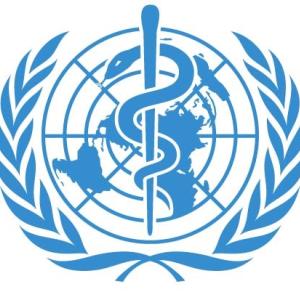USAID and WHO Strengthen Tuberculosis Control in Turkmenistan
09 December 2024
In partnership with the Government of Turkmenistan, USAID’s three-year project “Accelerating Efforts to End Tuberculosis (TB) and Drug-Resistant Tuberculosis (DR-TB) in Turkmenistan”, implemented by the World Health Organization (WHO), has helped Turkmenistan achieve significant TB control milestones, including a notable reduction in TB incidence. The recent WTO global TB data for 2013-2023 showed a 10% decrease in national TB incidence over recent years in Turkmenistan, highlighting the success of the National Tuberculosis Program (NTP) supported by USAID’s project.
The USAID project helped introduce shorter, all-oral treatment regimens, which reduces treatment duration for drug-resistant TB patients from 18 months to just 6–9 months. This improvement has not only raised treatment adherence but also minimized side effects, significantly enhancing the quality of life of patients.
With WHO and USAID support, the NTP launched the Tuberculosis Recording and Reporting System (TB-RRIS), a digital system that enables real-time monitoring of TB cases and treatment progress, as well as data-driven decisions for health professionals.
Moreover, with the support of the USAID project and in accordance with WHO’s guidance, Turkmenistan, the first in the region, is pioneering joint treatment protocols for managing DR-TB and hepatitis C. WHO specialists conducted operational research to advance the use of shorter, safer DR-TB regimens, with potential applications across Central Asia.
With USAID sponsorship and the guidance of WHO experts, Turkmenistan's TB protocols now align with the latest WHO guidelines on screening, prevention, diagnosis, and treatment of TB. This ongoing update process ensures that Turkmenistan’s TB program adheres to cutting-edge standards and maximizes treatment success.
In addition, the joint USAID-WHO partnership builds national capacities on community-based TB support services and facilitates regional collaboration, empowering local health workers to deliver patient-centered care to vulnerable populations and connecting national expertise with regional best practices.
All these measures help strengthen national healthcare service delivery capacities and reduce the TB incidents across the country.
By 2025, USAID and WHO aim to provide shorter treatment options for 80% of DR-TB patients in Turkmenistan. This international collaboration, strengthened by regional partnerships and capacity building, positions Turkmenistan as a leading country in TB control in Central Asia, illustrating the power of partnerships in building resilient healthcare systems.
***
In partnership with the Government of Turkmenistan and the WHO, USAID’s “Accelerating Efforts to Reduce TB and DR-TB in Turkmenistan” project strengthens national TB control by advancing prevention, detection, and treatment, particularly for drug-resistant TB. This initiative expands rapid diagnostics and WHO-led community TB services, supporting Turkmenistan’s National Tuberculosis Program and aligning with the USAID Global TB Strategy 2023-2030 to improve public health outcomes across the country.



